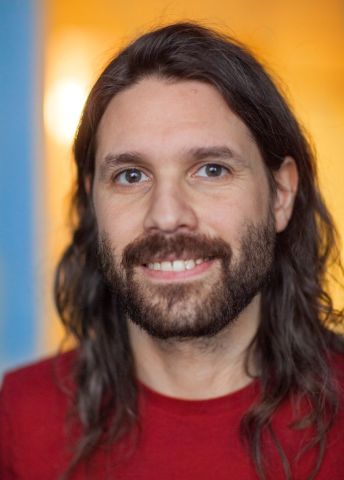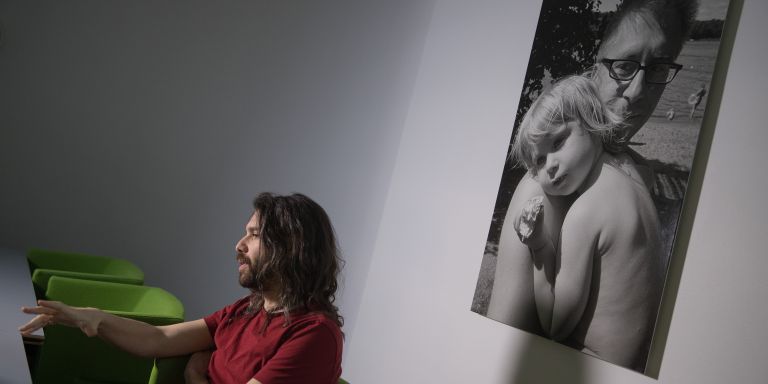
Pontus Strimling
Associate professor in economics
Wallenberg Academy Fellow prolongation grant 2022
Institution:
Linköping University
Research field:
How norms form and change in society


Wallenberg Academy Fellow prolongation grant 2022
Institution:
Linköping University
Research field:
How norms form and change in society
The year was 1966, and Sweden was the first country in the world to outlaw corporal punishment of children, finally enshrined in law in 1979. Swedish attitudes have adapted accordingly.
Many might believe that prevailing norms are stable, but Strimling argues that they can change over time. He says that our aversion to corporal punishment is not merely the result of enacting laws; we are adopting a more restrictive view of violence in general.
Strimling has been chosen as a Wallenberg Academy Fellow and will have the time and resources to make a detailed study of values concerning violence, hygiene and gender equality – areas where major changes take place every generation.
“As yet, there is no theory to account for norms that change and those that endure. The project aims to establish a basis for such a theory,” Strimling says.
“I am happiest in interdisciplinary environments, but they rarely offer stability. The Wallenberg Academy Fellow grant enables me to pursue my eclectic approach. It is also a great honor. I feel I have been personally chosen.”
Earlier research in the field has sought an explanation in technological progress, increased welfare, and tougher laws. But Strimling and his fellow researchers at Stockholm University have shown how normative changes can occur in the meeting between individuals. For instance, those who disavow violence will make their revulsion clear if they meet others who accept physical aggression.
“My hypothesis is that at any given time there is a span between individuals who are less accepting of violence and those who tolerate it. People who are less prepared to accept violence are more inclined to socially punish those who tolerate or condone it,” Strimling explains.
The same phenomenon may occur if people with high standards of personal hygiene find themselves in the presence of people who are less particular. The project will study attitudes to bodily fluids – mucus for example.
“We have moved from blowing our noses in our hands, to using tablecloths, and then paper tissues. It was long considered acceptable to display the contents as well,” Strimling says.
Norms can also be influenced by arguments. Strimling believes this to be a key driver of change on moral issues. He thinks that Swedes support the right of homosexuals to marry because growing numbers of people have persuaded those around them to adopt a more permissive attitude. Arguments also play a major part in demands for gender equality.
Strimling is using psychological experiments to study how people react if they are provoked or repelled by various views and behaviors.
“We can measure physiological reactions such as skin moisture, and changes in pupil size to see whether the subjects’ response is to fight or flee. We think that both behaviors can be interpreted as punishment. Avoiding someone is a form of social punishment.”
The subjects are also asked to complete questionnaires about how they experience various situations. The answers are inserted in mathematical models to identify the normative changes we can expect in the future. The results will then be compared with data from other countries. The aim is not to describe what is right or wrong; it is simply to ascertain how normative changes spread by human interaction.
“Animals don’t care what other animals do, as long as it doesn’t affect them directly. But people have a tendency to punish behaviors they don’t like,” Strimling comments.
He does not think his project will arrive at a complete explanation of such a complex phenomenon as normative change, but considers that just being able to make correct predictions would be a breakthrough in itself.
Strimling has a PhD in mathematics, but has also researched in biology, sociology, economics, political science, anthropology and – as he puts it – a tiny bit of linguistics.
“It sounds as though I’ve spent my time on widely disparate subjects, but I’ve always studied changes over time – particularly culturally distinctive features,” he says.
Earlier that day Strimling had interviewed applicants for two of the research positions advertised for the project. He is keen to recruit behavioral scientists, economists or political scientists – provided they are good at statistics. But their personality is more important than their specialty.
“I want to work with researchers who are curious, enthusiastic – prepared to think outside the box.”
He has noticed that men can appear more self-confident in a job interview, and therefore usually has candidates take some kind of aptitude or knowledge test.
“I want the best – not someone who thinks they are the best. Today I used the U.S. SAT to test a man who thought he was good at English, and a woman who considered it to be her greatest weakness. Her results were better.”
Text Carin Mannberg-Zackari
Translation Maxwell Arding
Photo Magnus Bergström